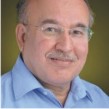
Moin Qazi
The great mystic Jalaluddin Rumi gives an interesting analogy of village women: In the early dawn, when nature lifts up the veil of darkness, bands of women trudge down the hills carrying water in pitchers on their head. On their way, the women gaily engage themselves in an endless chatter, talking about their homes, the village, and the weather. But while all this talking goes on, the pitchers are balanced with perfect poise. The mind is engaged in the talk, but it never mundane chores, but should not become unmindful of the Creator who governs the universe. There is a well-known Sufi saying:“A man should be in the marketplace while still working with true reality”.
In another analogy, Rumi likens the world to a river and the individual to a boat. To float in the river, the boat needs the support of water, but that very water can penetrate the boat and sink it if there is a chink in it. Similarly, we need the basic wherewithal for our sustenance, but once we amass them in overabundance, they devour our spiritual self.
The Greek ideal of “the golden mean” and “nothing in excess” is founded on this wisdom. Over-indulgence in worldly pleasures leads to a state of weariness of heart. We need to temper our worldly lives with the demands of the soul. Similarly, asceticism to the point of harshness deprives us of experiencing the subliminal beauty of life. What we need is harmony and balance. To use the words of Socrates, “Remember that there is nothing stable in human affairs; therefore, avoid undue elation in prosperity, or undue depression in adversity.”
The Chinese philosopher Huang Po said: “Do not permit the events of your daily lives to bind you, but never withdraw yourselves from them. Only by acting thus you can earn the title of ‘Liberated One’.”
Do for this world as if thou were to live a thousand years, and for the next as if thou were to die tomorrow – Prophet Muhammad
Humans have struggled across centuries to achieve in their lives the “golden mean” or the “middle path”, which represents the ever-elusive point of perfect harmony that everyone pursues. Following the middle path aids us in all of these things. It negotiates the extremes of harsh asceticism and sensual pleasure-seeking, between attachment and aversion, between being and non-being, between form and emptiness, between free will and determinism, between hedonism and asceticism.
For Michel de Montaigne, the great French essayist, life is an art. It’s a process of intuition, of discovery, of contemplation and finding pleasure in the journey. Most of us do not live our lives as we are meant to live, as opposed to simply ‘existing’.
The Prophet believed that an ideal life was one which had the right combination of both the essential elements of life: one which could provide dignified life on earth; the other which could provide salvation in the hereafter. The Prophet repeatedly emphasized that one should be in this world as a stranger or passerby.
Spiritual teachers repeatedly emphasize the need for seeking equilibrium between the material and spiritual scales of life. There are those who strive toward fulfilling the physical needs of the body, but often let the soul starve. Conversely, there are others who satisfy the soul but keep the body starved. Sufis like Rumi consider the spirit and body to be one whole. They believe in integration, not dichotomies. This integration extends beyond the individual as well, but we humans often forget that everything is part of a total, interdependent network in which each element is vitally important and interrelated to every other element, thus failing to appreciate the fact that our very existence depends on the existence of all other things in the universe.
Life is not about endurance, nor is it about apathy—itis about balance. Michael Singer puts it pithily in The Untethered Soul: “The more you work with balance, the more you can just sail through life. All forces are in harmony.”
(The author can be contacted on moinqazi123@gmail.com)

COMMENTS